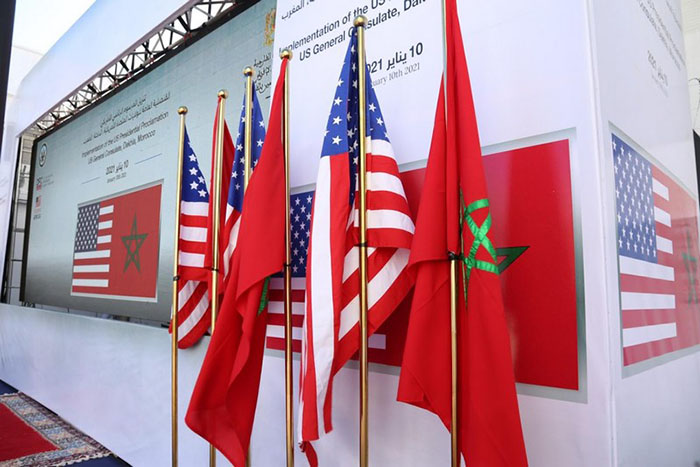
U.S. Reaffirms Support for Morocco’s Autonomy Initiative and Commends King Mohammed VI’s Regional Leadership
Wednesday, October 2, 2024, 9:26 AM
Washington – The United States on Tuesday reaffirmed its support for Morocco’s autonomy initiative as a “serious, credible, and realistic” solution to the long-standing regional dispute over the Western Sahara. This endorsement came following a high-level meeting between Morocco’s Minister of Foreign Affairs, African Cooperation, and Moroccans Abroad, Nasser Bourita, and U.S. Secretary of State Antony Blinken in Washington.
In a statement issued after the talks, a spokesperson for the U.S. State Department emphasized that the U.S. continues to regard Morocco’s autonomy plan, first proposed in 2007, as a viable framework for resolving the Western Sahara conflict. “The United States continues to consider Morocco’s autonomy plan as serious, credible, and realistic,” the spokesman affirmed, highlighting Washington’s ongoing support for Morocco’s approach.
The two leaders also reiterated their commitment to the United Nations-led political process on the Sahara, pledging support for the efforts of the UN Secretary-General’s Personal Envoy, Staffan de Mistura. The U.S. and Morocco expressed a shared desire to see a lasting political solution to the conflict “without further delay,” underscoring the urgency of resolving the decades-long dispute.
In addition to reaffirming support for Morocco’s position on the Sahara, the United States also took the opportunity to commend the leadership of His Majesty King Mohammed VI in promoting stability and security across the broader Middle East and North Africa (MENA) region. According to the State Department’s statement, “The United States appreciates the crucial voice of His Majesty King Mohammed VI in promoting a more peaceful and secure Middle East region.”
Morocco’s regional leadership is reflected in its proactive efforts on multiple fronts, including humanitarian assistance in Gaza and initiatives to promote stability in the West Bank. The State Department further acknowledged Morocco’s critical role in revitalizing the Palestinian Authority and contributing to the resolution of ongoing regional conflicts.
Secretary of State Blinken also praised Morocco’s active diplomatic efforts in addressing other regional challenges, notably its involvement in resolving the political impasse in Libya and promoting stability in the Sahel, a region beset by growing insecurity and extremism. The U.S. highlighted Morocco’s steady engagement as key to addressing the root causes of instability and promoting long-term peace in these areas.
The reaffirmation of U.S. support for Morocco’s autonomy initiative, combined with recognition of King Mohammed VI’s leadership, highlights the strong diplomatic ties between Washington and Rabat. It also signals continued alignment on critical regional issues, from the Western Sahara dispute to broader geopolitical concerns in the MENA region.
With both nations committed to advancing shared objectives, including peace, security, and economic cooperation, this meeting between Bourita and Blinken further solidified Morocco’s position as a pivotal player on the international stage. As the United States continues to back Morocco’s autonomy plan for Western Sahara, the chances of a lasting resolution to the conflict appear increasingly within reach.




